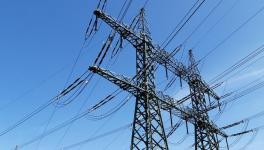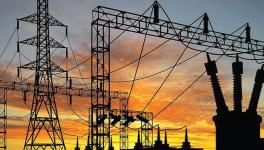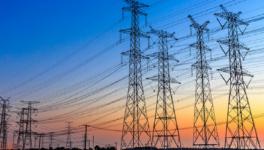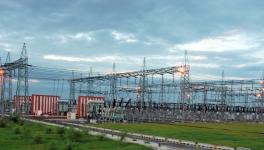‘Privatise or Lose Funding’: Power Engineers Oppose Ministry’s Arm-Twisting Ultimatum
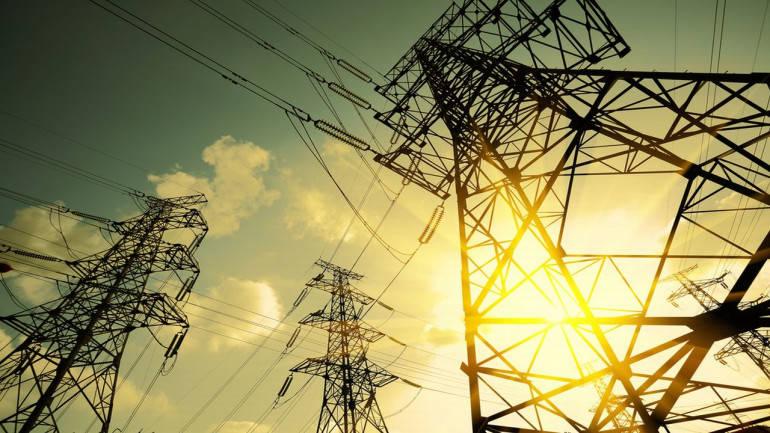
Image for representational purpose only. Courtesy: Money Control
The Union Ministry of Power has given an ultimatum to the state-owned power distribution companies — privatise or lose funding — and the All India Power Engineers’ Federation (AIPEF), representing more than 1.5 million power sector engineers across the country, has strongly opposed the move.
The AIPEF slammed the “arm-twisting tactics” of Power Minister RK Singh, who recently threatened the state power discoms that no financial assistance from the Centre or loans from the Power Finance Corporation would be sanctioned — unless the discoms hand over the business of supply of electricity to multiple private-sector supply licensees or franchisees.
This move, although officially proposed by the NITI Aayog in its ‘strategy paper’ in November 2018 — is essentially what the Electricity (Amendment) Bill 2014 and 2018 were about.
Power sector employees across India had united to oppose the Bill, ever since it was introduced in 2014.
Since 2017, when there was talk of reintroducing the 2014 draft Bill in Parliament, the power workers have consistently been mobilising and while trying to mount a concerted nationwide campaign, staged protests as part of the joint platform of the National Coordination Committee of Electricity Employees and Engineers (NCCOEEE).
Last year, the power employees in Uttar Pradesh had carried out a successful agitation against the state government’s parallel move to privatise electricity distribution activities in seven districts.
The AIPEF has also already been opposing the NITI Aayog’s privatisation proposal.
The Electricity (Amendment) Bill sought to bifurcate the distribution function of the power sector into ‘carriage’ (infrastructure) and ‘content’ or the actual sale. It proposes that a government company will lay down the wires (distribution network), while private companies compete over selling the electricity to consumers and earn profits.
This essentially means that profits would be privatised while the risks and the losses are nationalised — the Bill also necessarily required one government-owned agency among the multiple licencees, presumably to cater to the less profitable sections of electricity consumers.
AIPEF chairman Shailendra Dubey said if the distribution network got damaged during a cyclone, for example, the discom would need to take all the risk in restoring the system. “The private supply licensee will be free from all those risks. Is it a fair trading practice?” he said in a press note dated August 27.
Faced with the staunch opposition to the Bill, the Power Ministry appears to be bulldozing privatisation — RK Singh told a magazine this month that “this can be done without amending the Electricity Act”.
However, since electricity is a concurrent subject, the central government cannot dictate its terms to state governments, Dubey pointed out.
The AIPEF chairman once again reminded the government of the debacle of the urban distribution franchisees. He said almost every fanchisee in “creamy” city areas in various states had failed to deliver power to consumers and ultimately, the state power distribution companies had to take over the system.
“Recently, SNLD franchisee in Nagpur has expressed its inability to run the system and has asked Maharashtra Discom to take over Nagpur distribution,” said Dubey, in a press note issued on August 27.
“The franchisees in Aurangabad, Jalgaon, Gaya, Muzaffarpur, Bhagalpur, Gwalior, Sagar, Ujjain, Nagpur have miserably failed. In other places, franchisees regularly default in making payments to the power corporations. With such a poor history of privatisation, from where shall the new franchisees emerge?”
The AIPEF also criticised the Power Ministry’s move of making letters of credit (LC) in favour of power plants mandatory for discoms, meant to facilitate the payment of private power producers — who have already landed the power sector in crisis, thanks to neoliberal “reforms” introduced by the central government in the form of the Electricity Act 2003.
Dubey said not only was no similar benefit being provided to the state power-generating companies, but that this policy would soon lead to the state power distribution companies facing a severe cash crunch — even in paying salaries to employees in some states.
“Further, in case of power supply stoppage by private generators, discoms will have to pay fixed charges and they would not be able be allowed to purchase power in the open market,” said Dubey.
“The consumers will be the worst sufferers,” he added, as the burden of increased costs would be passed on to the people.
The Ministry’s order to discoms to open letters of credit in favour of power plants came into effect in all states from August 1.
Dubey said state discoms have improved their collection efficiency and “delivered better utility services in Gujarat, AP, Telangana State, Karnataka, Maharashtra, Punjab, WB and in many other states, compared to private entities.”
The Electricity Act 2003 had dismantled the State Electricity Boards (SEBs) and replaced them with three separate entities catering to generation, transmission and distribution.
The 2003 Act was following the World Bank model of “unbundling” of the power sector — with the aim of ushering in private players into the safer and more profitable aspects, such as generation.
Indeed, a large number of private companies entered thermal power generation as rules were massively ‘liberalised’ — precipitating the current bad loan crisis of private power generators — even as transmission and distribution remained with the state governments. Distribution was also privatised at some places in the country, including Odisha and Delhi, where it failed spectacularly.
At present, Kerala remains the only state where the State Electricity Board has not been trifurcated.
The power engineers’ federation has demanded an independent evaluation of the performance of the privatised power utilities across the country, “their impact on the consumers in terms of the cost burden and customer service, and the financial burden caused by them to the banks.”
Get the latest reports & analysis with people's perspective on Protests, movements & deep analytical videos, discussions of the current affairs in your Telegram app. Subscribe to NewsClick's Telegram channel & get Real-Time updates on stories, as they get published on our website.









